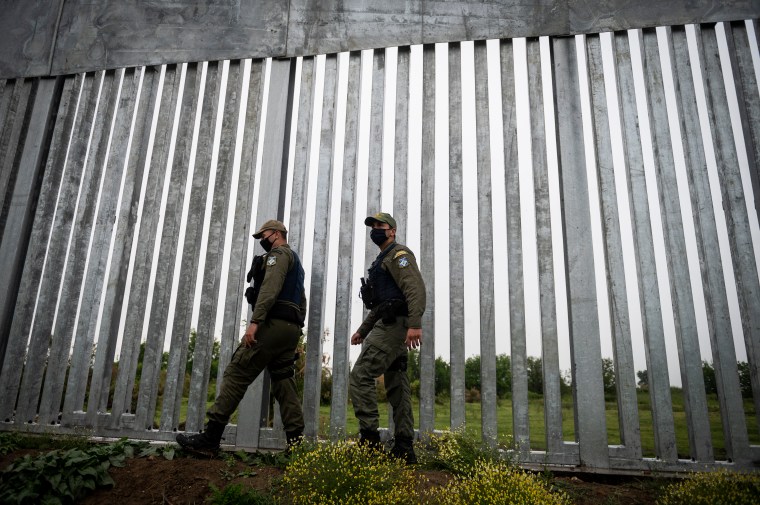Berlin, June 8, 2021 — Greek authorities should allow journalists to cover refugee movements and other events of public interest without police interference, the Committee to Protect Journalists said today.
On May 29, police in Dikaia, a Greek town near the borders of Bulgaria and Turkey, stopped a reporting team from the Dutch public broadcaster VPRO while they were covering refugees in the area, according to news reports and VPRO reporter Bram Vermeulen, who communicated with CPJ via email.
Police said that the crew, comprised of Vermeulen, a camera operator, sound engineer, researcher, and translator, were in a restricted area, ordered them to stop filming, and then took all five to a local police station for questioning, according to those sources.
At the station, officers demanded to see the team’s video footage, which they refused to hand over; after about an hour, police told them not to return to that area and then released them without charge, Vermeulen said. He added that the other crew members preferred that their names not be disclosed.
“Greek authorities must allow reporters covering refugee movements to work freely, especially in border areas,” said Gulnoza Said, CPJ’s Europe and Central Asia program coordinator, in New York. “If police detain, harass, or obstruct journalists, this only indicates that the Greek authorities have something to hide.”
Vermeulen told CPJ that the crew had accreditation from the Greek police and army to work in the area. He said they were covering the alleged practice of “pushbacks,” in which European Union member states forcibly return refugees to Turkey, contrary to international asylum law.
Vermeulen said that his crew was filming in what they believed to be a public area, and said there was no sign that it was a restricted zone.
“When I asked if we were under arrest, the officer told us; no and not yet,” Vermeulen said. “We had a long argument about whether this was a public or military area, he could not show anything [indicating that] it was indeed military.”
CPJ emailed the press department of the Ministry of the Interior, which oversees the police, for comment, but did not immediately receive any reply.
